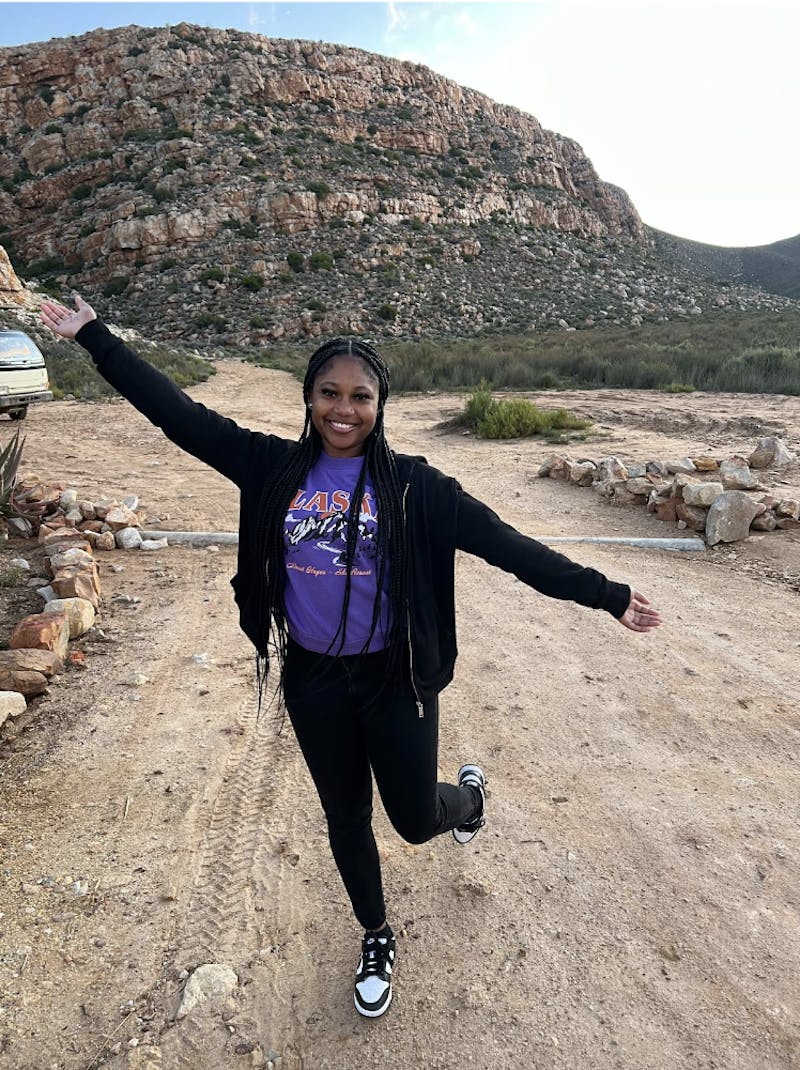
COURTESY OF JA'NIYAH MOORE
Overnight trip to Hartebeest Kraal (safari) in Capetown, South Africa.

COURTESY OF JA'NIYAH MOORE
Overnight trip to Hartebeest Kraal (safari) in Capetown, South Africa.
During my time in Cape Town, I was able to navigate the country of South Africa for six weeks with seven other Hopkins students. As I reflect on my time, I think about the memories I gained at CampusKey, the residential site I stayed at. CampusKey is home to many South African students studying at the University of Cape Town. There, I was able to be vulnerable and compassionate and, most importantly, learn from those around me. No matter if they were raised in the townships or in mixed (Coloured) communities, they treated us as family and welcomed us with open arms.
The idea of Ubuntu — or humanity to others — was expressed in every way as I navigated through Cape Town. Ubuntu, a South African term, reminds me of togetherness, which is why I felt so safe with the people that I met and the friends I made along the way. From the food to the culture, the excursions and more, I was able to immerse myself in their culture, and I loved every part of it. It all shaped my mindset of what the ordinary lives of most South African students are like.
While in Cape Town, I was fortunate enough to go on multiple excursions, which included Robben Island, District Six Museum, the beach, a township called Langa, The Heart Museum, Cape Point and a Safari. All of these experiences taught me about their rich history that almost exactly paralleled the history of the city of Baltimore. Apartheid and segregation are how white oppressors divided the Black community, which is still broken to this day. (Sounds familiar, right?) Although I witnessed housing that was racially segregated when traveling through townships where Black South Africans lived, it wasn’t a new feeling. I was able to show empathy to them, while also sharing my experiences from home.
Each week, I had a lot of time to reflect on my feelings by documenting them in my journal. I took two higher-level public health courses, one being “HIV, AIDS, Policy and Ordinary Lives,” and the other was a course in “Community Engagement Writing.” We met up every day during the week and had deep discussions about what we were seeing and experiencing while there. I was able to check in with myself but also learn from professionals who taught differently than I was used to.
In “HIV, AIDS, Policy and Ordinary Lives,” I was able to read and write about the ordinary lives of South African people who were significantly impacted by HIV. This tied into the research, courses and fieldwork I was doing in the U.S. I learned South African people suffered unequally due to their infrastructure, health care systems and lack of access. These factors are what we discuss in public health classes all the time at Hopkins, but I learned we were missing an essential part of the story: the people's voices. Taking this class from an anthropological approach made me more aware of the everyday lives that people had to endure as their choice of health freedom was stripped away once again by oppressive systems.
I also took another course on community engagement, where I participated in over 60 community service hours at a site called Mosaic. Mosaic is a non-profit organization that focuses on inter-partner violence and domestic abuse. The workers at Mosaic work endlessly to address gender-based violence in South Africa, highlighting survivors and their stories. While at the sight I was able to work closer with the current director of Mosaic, Ronel, on different projects involving the empowerment of South African women. I was then able to go into class and actively reflect on what I had been learning. It was a great way for me to release any emotions that were tied to the dense but well-needed work they did at Mosaic.
In all, I had a beautiful experience in South Africa. On top of the culture, food and excursion, I was able to make long-lasting relationships that I will cherish forever!
Ja’Niyah Moore is a junior from Knoxville, Tenn. majoring in Public Health Studies.